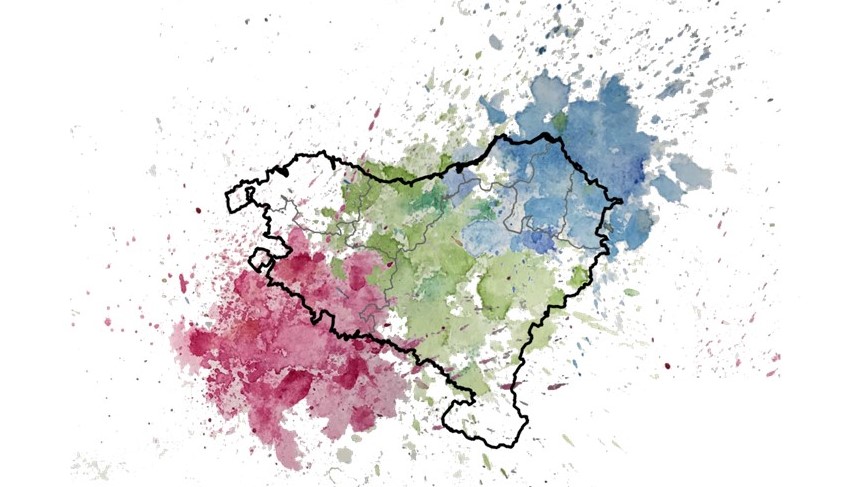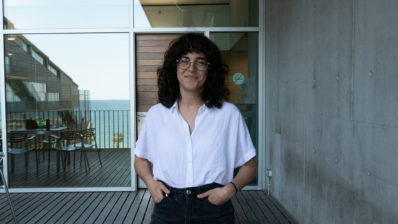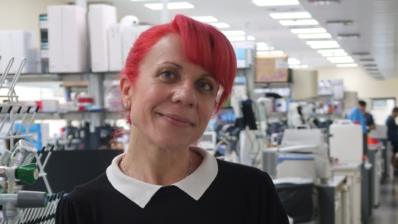The uniqueness of the Basque population has long intrigued scholars from different fields. Basque is the only pre-Indo-European language that survives in Western Europe. But apart from the linguistic singularity, scientists such as David Comas, head of the Human Genome Diversity lab at the Institute for Evolutionary Biology (IBE: CSIC-UPF) and current director of the Department of Experimental and Health Sciences, Pompeu Fabra University (DCEXS-UPF), have been trying to understand, for years, the genetics of this population.
Recently, their research group has published an article confirming that the uniqueness of the Basque population is not due to a different origin from the rest of the populations of the Iberian Peninsula. Is is, instead, due to its genetic continuity since the Iron Age. A continuity that has been guaranteed thanks to a certain isolation of the Basque population over the years.
To find out the key element governing this isolation and to know the details of the study, we meet David Comas in his office at IBE, in the Barcelona Biomedical Research Park (PRBB).
The uniqueness of the Basque population is not due to a different origin. It is due to its genetic continuity since the Iron Age, thanks to a certain isolation of the Basque population over the years.
When did you become interested in the genetics of the Basque population?
I have been interested forever! In fact, I already started studying the genetics of the Basque population during my doctoral thesis. Because, since we had the first genetic data of the Basque population, it was clear that they were singular. Besides, we’ve recently known that the genetics of the Basque population have been maintained since the Iron Age, that is, for about 3,000 years.
And you have finally been able to explain the origin of this singularity! Tell us, what did you do to find it out?
We have studied the diversity of the genome of 200 individuals who live in very specific regions of the Basque Country and whose four grandparents already resided in that same region. We have compared this diversity with that of almost 2000 individuals from all over Europe and the Mediterranean area and also with samples of ancient DNA.
How did you study diversity?
We used commercial chips that analyze 600,000 markers spread throughout the genome. Most of these markers are mutations where a single base is changed and are neutral. That is, they are far from genes and do not cause any functional alteration.
By comparing these markers of the Basque population with those of individuals from other regions and with samples of ancient DNA, we have seen that the genetic singularity of the Basque population is not due to its external origin with respect to other Iberian populations. It is due to the decline of contacts since the Iron Age.
Let’s reveal the mystery: what has caused the isolation of the Basque population?
It has not been physical barriers but sociocultural barriers that have isolated the population. In fact, our genetic data correlates very well with the areas where Basque is spoken. And not only that, we have seen genetic differences between populations that speak different dialects of the language.
This geographical compartmentalization related to dialects is uncommon in such small populations. And, curiously, the genetic data show that the dialects of the Basque have emerged long before the Middle Age, as it was thought until now.
“We have seen a great genetic heterogeneity within Basque people, unusual for such a small population and region. This heterogenicity corresponds to the different dialects of Euskera, indicating that the language has been a barrier against the internal and external mix”
At what point did you realize that the language was the key factor?
Well, as I said, we have been looking at the uniqueness of the Basque population for many years and this theory was the starting point for this work. With the help of a team of linguists, we selected the individuals to study based on their geographical and linguistic background. We studied individuals from 18 microgeographic areas: 10-11 areas where historically they have spoken Basque and surrounding areas where they have not spoken the language.
But the Basque Country has experienced several invasions: the Roman, the Visigothic, and so on. Have these invasions affected the genetics of the Basque population?
It is true that they have coexisted, but much less than in other areas of the Iberian Peninsula. We see that Basque has some latin words, which confirms there was cultural contact. But according to genetic data, these contacts were less frequent than in the rest of the Iberian Peninsula.
In this study you have considered different points of view. How did you established this connection with the team of linguists?
It all started several years ago in a workshoop held in Bayonne, in the French Basque Country. There, linguists, anthropologists, historians, geneticists, etc. tried to define this project. We held several meetings until we delineated the starting hypothesis and the questions that we wanted to answer using the genetic data.
Finally, is the isolation of the Basque population unique in Europe?
No, a similar case is the one of Sardinia, where the population also has many genetic peculiarities. But in the case of the Sardinians, we have a very clear explanation: they have suffered isolation because they are in an island.
Here, the difference is that we understand geographical boundaries very well, but socio-cultural barriers are harder to understand. Although our genetic data clearly correlates with Basque and with the dialectal variants of the language.
Flores-Bello et al. Genetic origins, singularity and heterogeneity of Basques, Current Biology, March 2021. DOI: 10.1016/j.cub.2021.03.010.







